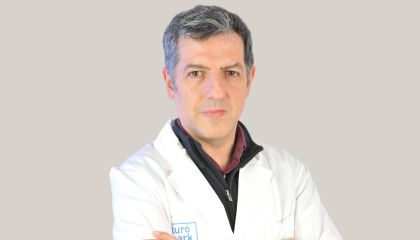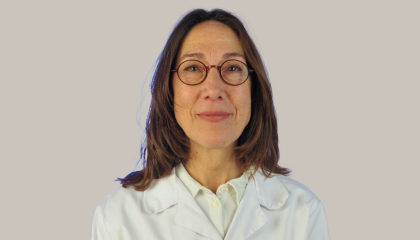Do you suffer from eating disorders and are you looking for support from a psychologist or psychiatrist in Barcelona?
Our psychiatric and mental health team are specialised in the treatment of eating disorders so that you can regain balance with support in Barcelona.
Eating disorders relates to a disturbance in the relationship with food, that significantly alters both physical health and psychosocial adaptation. They present in various forms and can appear at any age, particularly in adolescents and young adults. The diagnosis must be made by a psychiatrist in order to organise the therapeutic strategy and develop a personalised treatment plan that suits you.
Nowadays, more people are affected by an eating disorder than ever before, the vast majority of whom are teenage women or young adults.
If you suffer from eating disorders yourself or if someone close to you has symptoms of an eating disorder, don't wait to make an appointment with one of our specialists for personalised care. Screening and treatment should be carried out as early as possible to increase the chances of success.
Fast track your treatment
To book an appointment or speak with one of our friendly team, please get in touch using the options below.

What are eating disorders?
There are four medically defined types of eating disorders: anorexia nervosa, bulimia nervosa, binge eating disorder and eating disorders not otherwise specified.
- Fear of gaining weight despite being underweight
- An absolute need to lose weight
- Preoccupation with body image
- Distorted body image (dysmorphophobia)
- Obsession with food and its caloric value
- Low self-esteem
Bulimia is an irresistible urge to eat a lot and quickly, followed by behaviours that aim to prevent weight gain: induced vomiting, use of laxatives, diuretics, fasting, intensive physical exercise.
The person's weight is normal or slightly below normal, which may help to hide the disorder from others. However, bulimia nervosa is also a serious disorder that requires professional treatment.
Binge eating is defined as the consumption of a very large quantity of food in a short period of time. However, unlike bulimia, these food intakes are not accompanied by behaviour designed to avoid gaining weight (induced vomiting, taking laxatives, etc.).
Hyperphagia can therefore lead to overweight or obesity.
What are the causes of eating disorders?
Eating behaviour depends on individual genetic and psychological factors, but it is also influenced by environmental, family and socio-cultural factors.
Eating disorders leading to bulimia nervosa and binge eating disorder are therefore the result of multiple factors.
Certain personality traits, such as perfectionism, the need for control or attention, and low self-esteem, are frequently found in people suffering from eating disorders. Similarly, trauma or difficult life events can trigger the disorder or make it worse.
These disorders usually appear in adolescence.
How to prevent the onset of EDs?
In today's image-and-appearance-focused society, it is difficult to prevent the onset of eating disorders. However, there are a number of factors that can help children feel good about themselves, so that they do not develop certain physical complexes:
- Encouraging the adoption of a balanced and diversified diet from an early age
- Make mealtimes a time for conviviality and sharing
- Avoid giving children a preoccupation with their weight
- Promote self-esteem and reinforce a positive body image
If you have any doubts about your child's eating habits, don't wait to consult a doctor.
Mental health is as important as physical health!
Our mental health and wellbeing professionals are here to listen to you and offer you personalised and comprehensive care so that you can regain your balance.

How are eating disorders treated at Turó Park Medical Clinic?
The goals of the treatment are to restore physical and psychological health, to achieve and maintain a healthier weight and to normalise eating habits.
During the initial management of an eating disorder, a comprehensive assessment of the patient is recommended, combining a somatic, nutritional and psychological assessment, including family and social dynamics.
Then, depending on the doctor's diagnosis, several approaches can be considered.
On the psychological level:
- Cognitive-behavioural psychotherapies
- Family therapy
- Participation in discussion groups
From a nutritional point of view, a nutritional and dietary re-education must be set up in order to reintroduce a normal diet in a progressive way, especially underlining the sociable nature of meals and the pleasure of sharing food.
In severe cases of anorexia or bulimia, when the person is severely malnourished or at risk of suicide or self-aggression, hospitalisation is sometimes necessary.
However, there is no specific drug treatment for eating disorders.
Our mental health specialists


